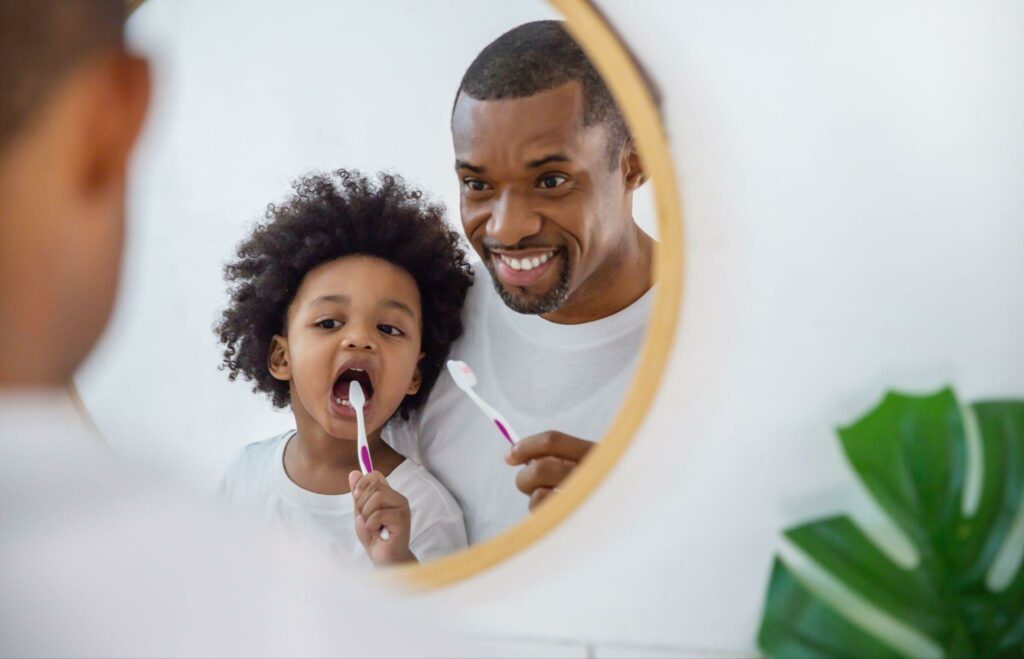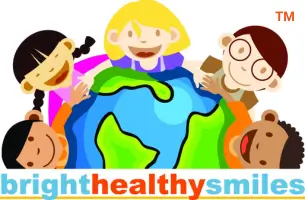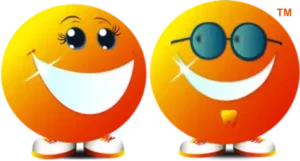Losing baby teeth is a natural process every child goes through, but it can be a confusing and anxious time for both parents and kids. If you’re a parent, you’ve probably wondered, “Do you lose all your baby teeth?” as your child’s gummy grin transforms into a mouth full of pearly whites.
This article aims to provide comprehensive answers to the most common questions regarding losing baby teeth. Our goal is to ease any concerns or uncertainties parents and children may have about this significant milestone.
At Bright Healthy Smiles, we are committed to delivering comprehensive pediatric dentistry, which includes guiding parents through the various stages of their child’s dental development. So, let’s explore this topic in detail!
Why Do We Lose Baby Teeth?
Losing baby teeth, or primary teeth, is a fascinating and natural part of human development. This transition from baby teeth to permanent teeth is critical for several reasons:
Natural Growth and Development
As children grow, their jaws expand, and more prominent, permanent teeth begin to form below the surface. Baby teeth act as placeholders for these incoming permanent teeth. The gradual process of losing baby teeth can sometimes involve experiences like loose tooth pain, but it ensures adequate space for the new teeth.
Prevention of Overcrowding and Misalignment
Without the timely shedding of baby teeth, permanent teeth might not have adequate space to emerge. This can lead to dental complications such as overcrowding, where teeth are tightly packed together, or misalignment, where teeth grow in skewed or twisted ways.
Nutrition and Dietary Evolution
As children age, their dietary needs and eating habits evolve. The shift from softer baby foods to more complex adult foods requires stronger and more durable teeth. Permanent teeth are larger, stronger, and have more complex structures like molars that can grind and break down tougher foods.
Formation of Proper Speech Patterns
Teeth play an essential role in forming clear speech patterns and proper articulation. As children transition from their baby teeth to permanent teeth, they undergo crucial changes in their oral anatomy, which significantly impact their ability to enunciate words and sounds accurately, contributing to effective communication skills.
Bone and Jaw Development
Shedding baby teeth and the eruption of permanent ones helps stimulate the jawbone’s growth and health. It ensures the oral structure correctly supports the new, more prominent teeth.
Psychological Development
Losing baby teeth and growing permanent ones can be seen as a rite of passage. It marks a transition from early childhood to middle childhood, fostering a sense of growth and maturity in children.
The Process of Losing Baby Teeth
When it comes to losing your baby teeth, the answer is yes, you will lose all of them, but it’s not as simple as them falling out simultaneously. The process of losing baby teeth typically begins around six and continues into adolescence.
Here’s a breakdown of the stages your child will go through:
The First Tooth
Seeing your child’s first baby tooth is a special moment in their early life. Usually, it’s one of the bottom front teeth that shows up first, usually when your child is a few months old. This is an exciting milestone for both parents and kids alike.
A Gradual Process
The process of losing baby teeth takes a few years and happens bit by bit. Usually, the first tooth falls out when a child is about six or seven, but after that, it can be different for each kid. This variation makes it interesting to watch because you never know exactly when each tooth will come out, and it’s part of how your child grows.
Making Way for the Permanent Teeth
When your child’s baby teeth fall out, something important is happening underneath. New teeth, called permanent teeth, grow and replace the old ones. This process goes on for a long time, and it’s a sign that their teeth are growing and getting ready to give them a healthy smile that will last a lifetime. Sometimes, you may notice a new tooth growing behind a baby tooth, which is usually a normal part of this transition and the baby tooth should fall out shortly.
Wisdom Teeth
In the late teenage years or early twenties, your child will experience the emergence of their wisdom teeth, also known as third molars. These teeth, usually the last to arrive, complete the set of 32 adult teeth.
Although this stage can sometimes be accompanied by discomfort and the need for removal due to limited space, it signifies the final step in their dental development, marking the transition into adulthood and the full complement of adult teeth.
What If a Baby Tooth Doesn’t Fall Out?
Sometimes, a baby tooth may not fall out on its own, even when the permanent tooth is ready to emerge. When this happens, it’s essential to consult a pediatric dentist. They can assess the situation and, if necessary, recommend a gentle extraction or even provide pediatric dentist anesthesia to ensure a comfortable and pain-free procedure, making way for the incoming permanent tooth.
.

Bright Healthy Smiles: Your Partner in Pediatric Dentistry
At Bright Healthy Smiles, we understand that every child is unique, and their dental needs can vary. We offer personalized treatment plans tailored to your child’s requirements. Whether it’s a routine check-up, oral examination, preventive care, or addressing specific dental issues, our experienced team is here to provide compassionate and specialized care for your little one.
Contact us today to schedule an appointment and join our Bright Healthy Smiles family. Together, we can ensure your child’s dental health and well-being for a lifetime of confident and radiant smiles. Your child deserves the best, we are here to make that happen.
Final Thoughts
While it is a common belief that everyone loses all their baby teeth, it’s important to recognize that exceptions exist. Some individuals may retain one or more baby teeth into adulthood, which might be caused by genetics or underlying dental conditions.
If you have questions or concerns about the process of losing baby teeth or your child’s dental health, don’t hesitate to contact us. At Bright Healthy Smiles, we are committed to addressing your inquiries and providing the necessary guidance and support.
FAQs
At what age do children typically start losing their baby teeth?
Children typically begin losing their baby teeth at around the age of 6. However, the exact timing can vary from one child to another, with some starting a bit earlier or later in their development.
How can I ensure my child smoothly transitions from baby to adult teeth?
To ensure a smooth transition from baby teeth to adult teeth for your child, it’s important to schedule regular dental check-ups to monitor their dental development and catch any issues early.
Additionally, promoting good oral hygiene practices, such as regular brushing and flossing, as well as maintaining a balanced diet that’s low in sugary foods and drinks, will contribute to the health of their emerging adult teeth.
Do all children lose their baby teeth at the same rate?
No, not all children lose their baby teeth at the same rate. Each child’s dental development is unique, and the timing of losing baby teeth can vary widely from one individual to another, with some children experiencing earlier or later tooth loss compared to their peers.
What if my child’s baby tooth doesn’t fall out on its own?
If your child’s baby tooth doesn’t fall out naturally, it’s recommended to consult with a pediatric dentist for guidance. They can assess the situation, determine any underlying issues, and provide appropriate recommendations, including interventions like tooth extraction to ensure proper dental development.
How many baby teeth do children have?
Children usually have 20 baby teeth, including eight incisors, four canines, and eight molars. These baby teeth emerge in the first few years of life and are eventually replaced by adult teeth during adolescence.



